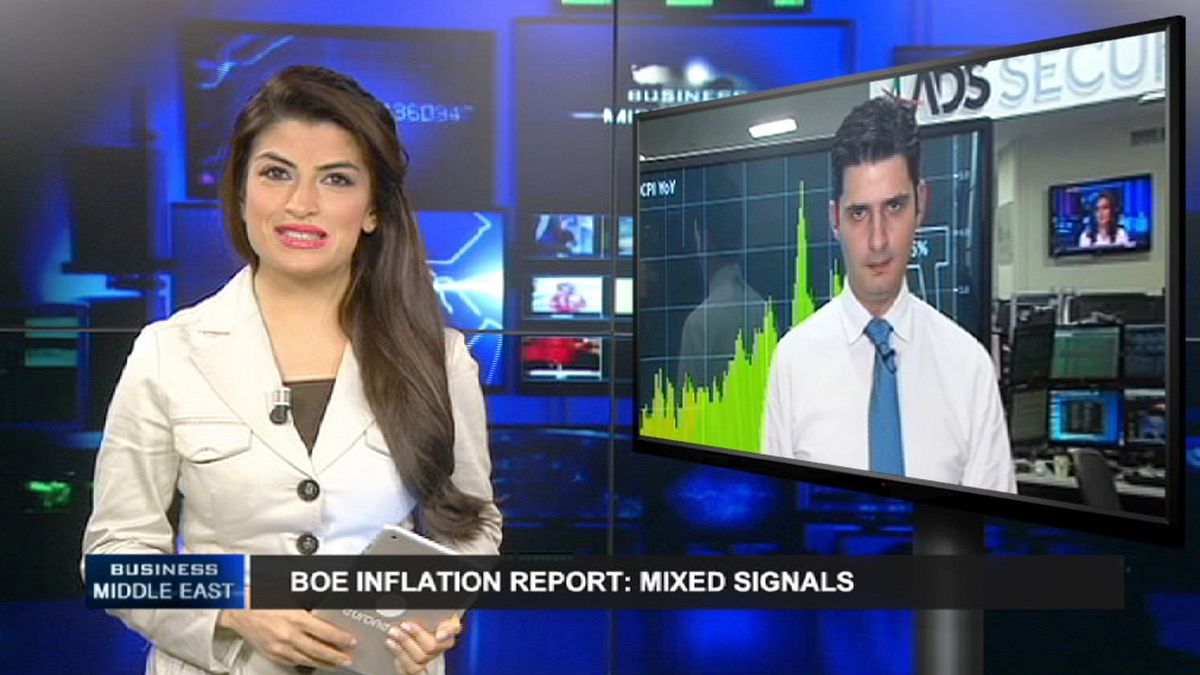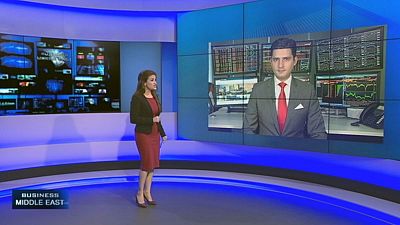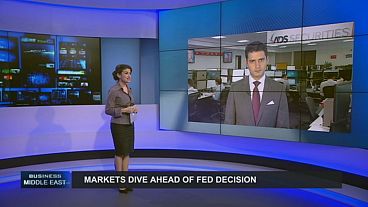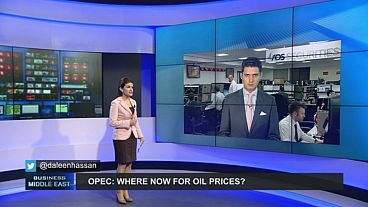Reading between the lines of the latest British inflation report from the Bank of England there seems to be some muddled thinking in the UK central bank’s latest policy statement.
Governor Mark Carney’s inflation report contains apparent contradictions.
He spoke of the possibility of raising interest rates at the end of the year, but at the same time confirmed that the bank stands ready to cut interest rates if necessary.
That has investors around Europe and in the Middle East asking questions. So, what trends can we expect, taking into account low inflation?
The Bank of England is still trying to look tough as it retains an expansionary monetary policy, but after last Thursday’s inflation report, its vision is a little less clear.
For the first time in 50 years, the British central bank has hinted at negative inflation- and a potential downturn later this year.
Governor Mark Carney said: “Inflation is at its lowest level since the introduction of inflation targeting two decades ago. It will likely fall further, potentially turn negative in the spring and be close to zero for the remainder of the year.”
Inflation was at a level not seen since 2009, which Carney attributed to the fall in oil prices.
The latest consumer prices data are leading to mixed signals. Carney pointed to the possibility of raising interest rates by the end of the year, but at the same time stressed that the bank is ready to cut its main interest rate if needed.
Most economists are saying it is unlikely inflation levels will recover anytime soon, which would make things difficult for the central bank’s aspirations of raising the cost of borrowing.
For an analysis of the BoE’s action Euronews’ Daleen Hassan spoke to euronews Nour Eldeen Al-Hammoury, Chief Market Strategist at ADS Securities in Abu Dhabi.
DH
Last December, the BOE was talking about raising the interest rates, but last week said it could cutting borrowing costs if necessary. So was Governor Mark Carney sending out a warning with that last statement?
NA-H
This kind of destabilising and uncertain remark by the global central banks, and not jut the BOE is not surprising. But Mark Carney’s statements have never been clear to investors since he took office. In the beginning, if you look at the rates of inflation in the UK, we see that they reached their lowest level since 2000 by 0.15 % – a level we haven’t seen even in 2004
This year inflation expectations reached a new low again following on from how low they were in 2013 and 2014… falling now to 0.9% for the year.
So, looking at the inflation rate, set for that record low in 2015, we can see that we are way off the Bank of England’s target of 2%, and therefore there is no reason for a rate hike anytime soon. In fact, the bank may cut the interest rate further if inflation goes negative faster than the markets estimates, amid the slowing down of the global economy. Remarks about raising rates come as there is some sort of a stabilization in economic activity, as well as rising wages. However, these numbers might turn lower again, as I said.
DH
Let’s look at currency trading. What is the pound’s trend against major currencies, and against currencies in the Middle East? What effect could this have on investors in the region?
NA-H
The British Pound had a good week last week following Carney’s remarks. The pound/dollar fell to 1.52 initially, following the rate cut remarks. However, the pair recovered above .54 the minute the BOE chairman said that rate hike remains on the table.
Sterling is likely to stabilize against the major currencies and the Middle East/North Africa region currencies as well. For example, the pound to the UAE’s dirham recovered to as high as 5.66 from January’s lows of 5.50. and against the Saudi Arabia’s Riyal it recovered to 5.79 from 5.61 during the same period.
Finally, sterling rallied against the Egyptian pound by almost 10 percent to 11.77 from January’s lows at 10.75. A rising pound would be negative for the region’s importers. However, it’s much better than last year, when it was near record high against these currencies (concludes).
Business Snapshot: Turkish Lira falls
Elsewhere in currency developments, it was an historic week for the Turkish lira, which suffered a sharp decline against the dollar to 2.50, the lowest level on record.
Economists pointed out that there are several factors at work. Federal Reserve policies, and the looming plans to raise US interest rates have pushed up the dollar against other currencies.
There has also been pressure on the Turkish central bank from President Recep Tayyip Erdogan, who is pushing for lower interest rates to boost the country’s economic growth and investment.
Up to now, the Central Bank has refused to reduce borrowing costs until inflation falls to levels it finds acceptable.
We won’t find out what is going to do until February 24, when the Central Bank holds its regular policy meeting, at which it is due to assess the inflation outlook and may give Erdogan what he wants leading to more volatility for the lira.



